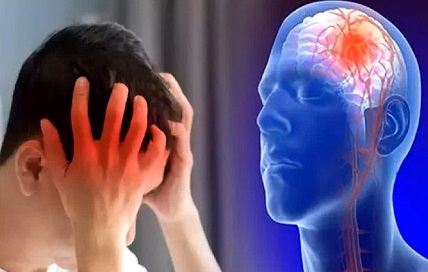Nikhil Prasad Fact checked by:Thailand Medical News Team Jun 15, 2024 1 year, 6 months, 1 week, 2 days, 1 hour, 12 minutes ago
Medical News: Stroke remains one of the leading causes of death and disability worldwide, posing a significant challenge for medical professionals. Recent advances in precision medicine offer new hope for improving outcomes in stroke patients. A groundbreaking study by researchers from Spain that is covered in this
Medical News report sheds light on the role of the enzyme glutamate oxaloacetate transaminase (GOT) in stroke recovery, particularly in patients with disrupted blood-brain barriers (BBB).
 Glutamate Oxaloacetate Transaminase Enzyme - A New Hope for Stroke Recovery
Understanding Stroke and Its Impact
Glutamate Oxaloacetate Transaminase Enzyme - A New Hope for Stroke Recovery
Understanding Stroke and Its Impact
Stroke occurs when blood flow to a part of the brain is interrupted, either by a clot (ischemic stroke) or a burst blood vessel (hemorrhagic stroke). This interruption deprives brain cells of oxygen and nutrients, leading to cell death and potential long-term disability. The urgency of treatment cannot be overstated, as timely intervention can mean the difference between recovery and severe impairment.
The Role of Glutamate in Stroke
Glutamate, a crucial neurotransmitter, becomes detrimental when present in excessive amounts during a stroke. High levels of glutamate can lead to excitotoxicity, a condition where nerve cells are damaged and killed due to excessive stimulation. Managing glutamate levels in the brain is thus vital for improving outcomes in stroke patients.
Introducing Glutamate Grabbers
Researchers have been exploring various methods to reduce glutamate levels in the brain. One promising approach involves the use of enzymes known as "glutamate grabbers," which include glutamate oxaloacetate transaminase (GOT) and glutamate-pyruvate transaminase (GPT). These enzymes help to lower glutamate levels by transforming it into other compounds, thereby reducing its neurotoxic effects.
Key Findings of the Study
The study focused on analyzing the relationship between GOT levels in the blood and patient outcomes after ischemic stroke. Here are the key findings:
-Correlation with Glutamate Levels: The study found a significant negative correlation between GOT levels and glutamate levels in patients with high serum levels of sTWEAK, a biomarker of BBB disruption. This means that higher GOT levels were associated with lower glutamate levels in the blood.
-Impact on Recovery: Patients with higher levels of GOT showed better functional outcomes at three months post-stroke, particularly in those with elevated sTWEAK levels or leukoaraiosis (a type of white matter brain damage).
Predictive Value of sTWEAK: The study established that sTWEAK levels above 2900 pg/mL could effectively differentiate between good and poor recovery outcomes, with high sensitivity and specificity.
Implications for Stroke Treatment
These findings highlight the potential of using GOT as a therapeutic target for str
oke patients, especially those with BBB disruption. By incorporating biomarkers like sTWEAK and imaging markers like leukoaraiosis, doctors can better tailor treatments to individual patients, improving the chances of recovery.
Future Directions
While this study provides valuable insights, further research is needed to fully understand the mechanisms at play and to validate these findings in larger, multi-center trials. Additionally, exploring other glutamate-lowering strategies, such as GPT and dialysis techniques, could expand the arsenal of treatments available to stroke patients.
Conclusion
The integration of precision medicine in stroke treatment marks a significant step forward in improving patient outcomes. The enzyme GOT shows great promise as part of a targeted approach to managing glutamate levels and enhancing recovery in stroke patients with disrupted BBB. As research continues to evolve, the hope is that these advancements will lead to more effective and personalized treatments, ultimately reducing the burden of stroke on individuals and healthcare systems worldwide.
By harnessing the power of precision medicine and understanding the unique needs of each patient, we move closer to a future where stroke recovery is optimized, and patients can regain their quality of life more quickly and completely.
The study findings were published in the International Journal of Molecular Sciences.
https://www.mdpi.com/1422-0067/25/12/6554
For the latest about Strokes, keep on logging to Thailand
Medical News.
Read Also:
https://www.thailandmedical.news/news/blueberries-could-hold-the-key-to-stroke-recovery
https://www.thailandmedical.news/news/drugs-and-brain-aneurysms-promising-findings-in-stroke-prevention
